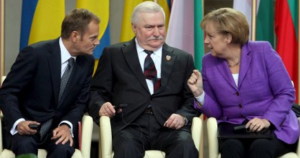
Polish Prime Minster Donald Tusk, Lech Walesa- in the middle, and the German Chancellor Angela Merkel
According to Lech Walesa, the legendary leader of the Polish Solidarity movement and the Nobel Peace prize laureate Poland and Germany- due to technological, political and security considerations- should be one state.
It might be yet another Walesa’s whims or a slip of the tongue but that the words came out of the mouth of the internationally recognized Polish statesman – even if a retired one – and did not raise much uproar in his own country (in fact some even started looking for an appropriate flag for the new German-Polish union) – is quite remarkable and illustrates the depth of the political, social and intellectual transformation that Poles went through since the end of the Second World War and, more recently, since the collapse of the Soviet Union when the country had just regained its full sovereignty. Enjoying it, not giving it up, was on everyone’s mind that time.
Is then the idea of a unified (even more so than the EU now) Commonwealth of Poland & Germany a sheer phantasmagoria or perhaps a not too distant possibility?
Firstly, this could have been said about many ideas in the past, including the EU itself until it happened.
Secondly, Polish and German states were politically close before- a millennium earlier, in 1000, the German emperor Otto III recognized the Polish duke as a politically equal ally and alleviated his international status that eventually led to the establishment of the Polish Kingdom. In the first half of the 18th century, the German Saxons were the kings of the Polish-Lithuanian Commonwealth, though they were not particularly interested in ruling the country torn apart by the anarchy of the Polish nobles.
Thirdly, in 2012, during the midst of the ongoing euro crisis, Pew research showed the public support for the EU and the European Integration to be one of the highest in Europe among Germans and Poles- close to 70%. No matter how eurosceptic some political elites in these two countries can be they cannot afford to ignore or go openly against such strong support. In fact, such high level public support suggests that elites in both countries can even win some political capital from closer integration in contrast to the elites in other European capitals.
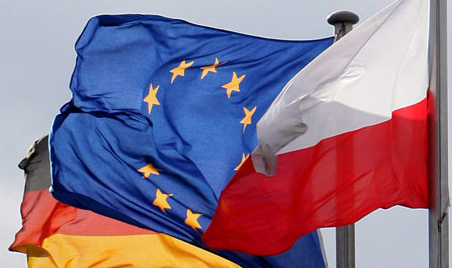 Fourthly, similar economic and fiscal philosophies and policies that Germany and Poland have implemented in last decade or so make easier and favor closer integration between Berlin and Warsaw. Both countries have led prudent fiscal policies and continued their market liberalization reforms that allowed them to mitigate the impact of the 2008 great recession more successfully than others did.
Fourthly, similar economic and fiscal philosophies and policies that Germany and Poland have implemented in last decade or so make easier and favor closer integration between Berlin and Warsaw. Both countries have led prudent fiscal policies and continued their market liberalization reforms that allowed them to mitigate the impact of the 2008 great recession more successfully than others did.
Furthermore, Germany- the biggest payer to the EU budget and Poland – one of the largest recipient of the EU assistance have also managed to develop a mutual consensus over something that might have divided them- particularly in the light of Germans’ increasing reluctance to share the integration costs – that it is necessary to maintain a high level of the EU wealth distribution to Central Europe in the foreseeable future. Poland benefits from it handsomely but so does the German export-oriented economy.
Fifthly, the Polish-German Commonwealth looks very appealing not only because of economic convergence between two nations as the necessary ingredient for the unified transnational entity- but also because of their current political weaknesses.
Germany and Poland- if taken together- cancel out or, at least, mitigate significantly each others’ weaker sides.
Poland can provide cover for more assertive German (or the Polish-German Commonwealth) foregin policy in Europe and beyond. This would help 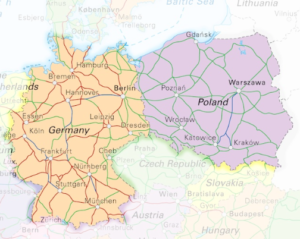 overcome Germany’s timidity in external relations and its national guilt for starting the last world war and the Holocaust of more than 5 million Poles, including 3 million Polish Jews. German-Polish Commonwealth could be more interventionist in favor of human rights and democracy in countries outside the EU, including the societies of the former Soviet Union.
overcome Germany’s timidity in external relations and its national guilt for starting the last world war and the Holocaust of more than 5 million Poles, including 3 million Polish Jews. German-Polish Commonwealth could be more interventionist in favor of human rights and democracy in countries outside the EU, including the societies of the former Soviet Union.
Poland scores points in its foreign affairs skillfully but often wants to punch above its economic weight. It could gain a solid ground for its ambitious engagements when united with Germany. With time, Polish economy that had already performed superbly in comparison with the German eastern lands generously aided since the German unification could in fact rival that of Germany, reinforcing the strength of the German-Polish Commonwealth and with it the EU as a whole.
Finally, what about the German and Polish societies? Are they ready to defy the strong current of centrifugal forces that see little nations of Catalonians, Scots, Flemish or Quebecans push for their independence rather than more national integration?
Poles as well as Germans have developed multitude of identities- they are Europeans when they speak with Americans and Asians, they are Poles and Germans competing in the World Cup, they remain Bavarians and Tatra highlanders for foreign and domestic tourists or Berliners and Warsowians when they celebrate the fall of the Berlin wall or the Warsaw uprising of 1944 respectively.
Poles and Germans’ multifold identities that flow through and across traditional national communities are generally accommodative and more importantly open – given the support for the European integration – to more and not less transnational unity.
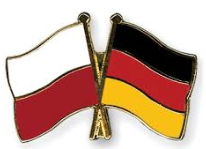
Technology, economy and security that Walesa mentioned are good pieces for integration but the necessary glue to hold them together must come both from the vision and bravery of the few that defy conventional thinking and the status quo and eventually from the active support of millions of ordinary people awakened to the new vision of their societies as it happened in Poland and Germany in 1989.
Maciej Bartkowski, Washington D.C., Oct. 6, 2013
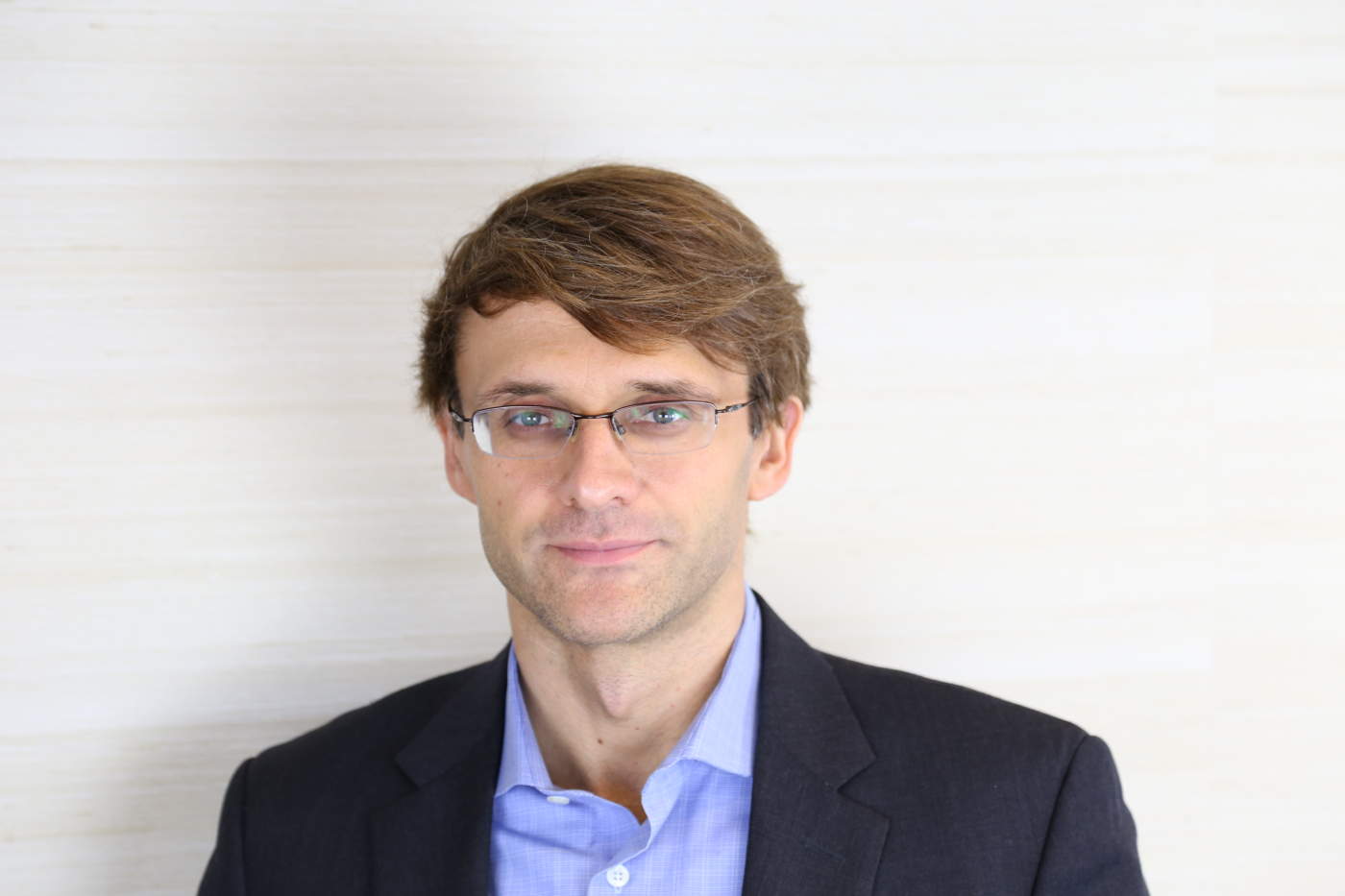



Recent Comments